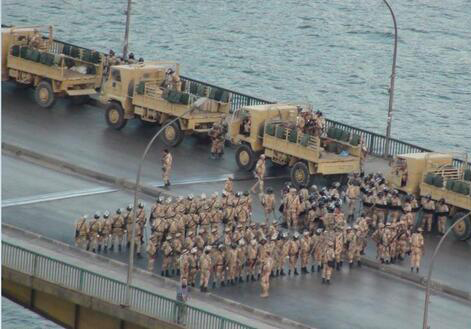The ICJ called on the Egyptian authorities, including the army, to uphold the rule of law and democratic principles and take immediate and effective measures to prevent the deterioration of the human rights situation.
The statement came as the head of the armed forces, General Abdel Fattah El Sisi, announced on 3 July 2013 the suspension of the Constitution and the removal of President Mohamed Morsi.
The General said that Constitutional Court Chief Justice Adly Monsour would head an interim government until new elections were held.
The ICJ is deeply concerned that the decisions that have been taken by the military are beyond the scope of its constitutional authority and violate basic rule of law principles.
If implemented, these decisions will also set a dangerous precedent, wrongly signaling that the conflicts and challenges in Egypt should be met by military force rather than through political engagement and legal processes, the ICJ said.
“All Egyptian authorities should ensure that any political disagreement or conflict is resolved in compliance with rule of law principles and through legally established channels. Under international law, political divergences cannot be invoked to justify the unlawful seizure of the executive power,” said Wilder Tayler, ICJ Secretary General.
The ICJ is also concerned about reports that President Morsi, his advisers and leaders from the Freedom and Justice Party have been arrested.
Journalists have also been arrested and several television stations linked to the Muslim Brotherhood were taken off air following the Military decisions.
“The army and government authorities should ensure the protection of the rights of those detained in the context of the ouster of President Morsi, including the right to liberty and to security of person. Journalists arrested while exercising their professional duties must be released immediately,” Tayler further said.
The transition process in Egypt, under both the Supreme Council of Armed Forces (SCAF) and President Mohamed Morsi has failed to comply with international rule of law and human rights standards, the ICJ said.
The ICJ is also concerned about of the deterioration of the human rights situation in Egypt over the last few days, including cases of unlawful killings and physical violence against protesters, including sexual assaults against women.
“The Egyptian authorities should ensure that these human rights violations are fully investigated with a view to holding the perpetrators to account. They must also guarantee the rights of all peaceful protesters to security and to the freedoms of assembly and expression,” Tayler added.
Contact:
Said Benarbia, ICJ Senior Legal Adviser of the Middle East and North Africa Programme, tel: 41 22 979 38 17, e-mail: said.benarbia(a)icj.org





